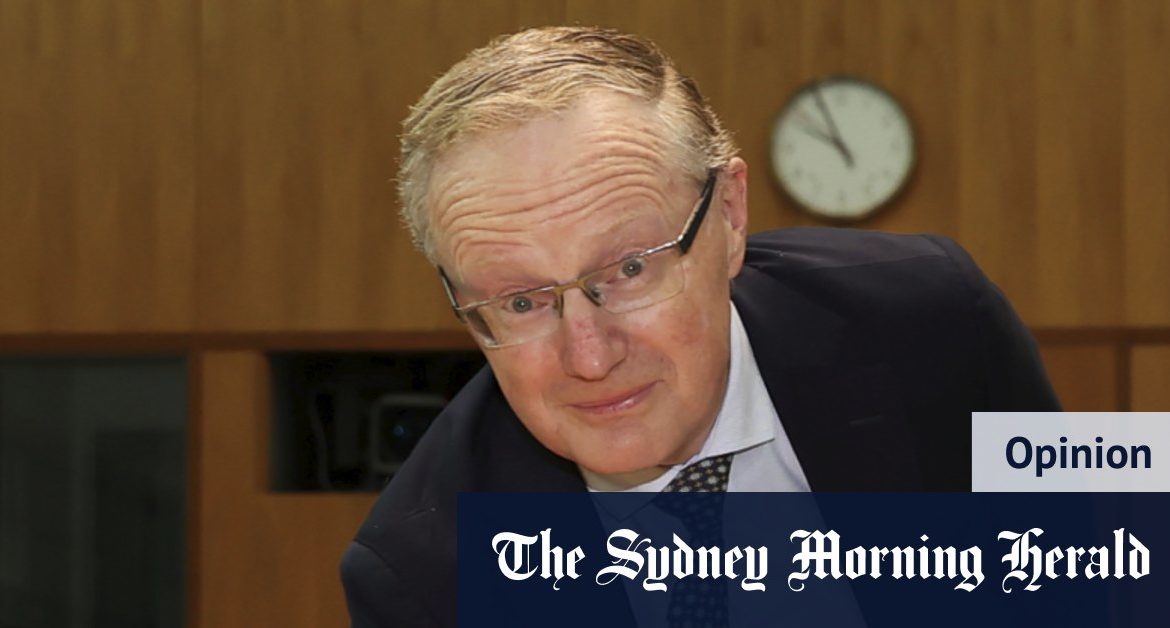It’s a delusion that, in the years before the arrival of the virus, growth would have been much stronger had Lowe acted earlier and harder. These critics conveniently ignore the obvious truth – which Lowe quietly but continually spoke of – that growth was weak not because he wasn’t trying hard enough to stimulate it, but because the elected government had its policy arm (the budget; fiscal policy) pushing in the opposite direction as it sought the glory of a budget surplus.
Loading
The shoulda-done-double brigade refuse to accept that monetary policy has lost its potency partly because fixing the economy with monetary policy is their only expertise and way of earning a living, and partly because their Smaller Government political inclination makes them disapproving of using increased government spending – though never tax cuts – to stimulate demand.
The RBA old boys’ association (and they are all boys) is right that we ought to be thinking a lot more about the reasons “unconventional” measures have formerly been verboten. QE doesn’t do what monetary policy’s supposed to, but does foster asset-price inflation, does risk boom and bust in asset markets, does favour the better-off, and does foster “beggar-thy-neighbour” exchange-rate contests.
The most immediate and worrying aspect of this is what it’s doing and will do to house prices and the affordability of home ownership. It’s literally true, but not good enough, for Lowe to say the Reserve doesn’t, and shouldn’t, target house prices. Saying the stability of the housing market isn’t the Reserve’s department won’t, and shouldn’t, save the central bank from copping most of the blame should something go badly wrong. (Little blame will go to the distortions caused by tax policy and local planning laws.)
People have been predicting a collapse in house prices for decades, but the more house prices are allowed to move out of line with household incomes – and the more highly geared the nation’s households become – the greater the risk the Jeremiahs’ prophecies come to pass.
When central bankers manipulate interest rates to encourage or discourage borrowing and spending, they are knowingly distorting prices and behaviour in the financial markets.Credit:Louie Douvis
It makes no sense for the people living on a big island to bid the prices of their fairly fixed stock of houses higher and higher and higher, then tell themselves how much richer they all are. Is this prudent central banking?
The equanimity with which some people contemplate negative interest rates is remarkable. Sometimes I think too much maths can make economists mad. The arithmetic works the same whether you put a minus sign or a plus sign in front of an interest rate, but the humans don’t. It’s not much better when you think paying oldies a zero interest rate on their savings a matter of no consequence.
When central bankers manipulate interest rates to encourage or discourage borrowing and spending, they are knowingly distorting prices and behaviour in the financial markets. Conventionally, they have minimised their distortion of market signals by limiting themselves to affecting short-term and variable interest rates.
But QE takes their distortion further out along the maturity “yield curve”, interfering with the market’s ability to decide how much more a saver should be paid for tying up their money for 10 years rather than one. When you move to negative interest rates, you rob pension and insurance funds of the ability to match their financial assets with their long-term liabilities.
One of the signals the market should be sending via longer-term yields (interest rates) on government bonds is the inflation rate it’s expecting down the track. This, by the way, explains why the Reserve is wise to buy only second-hand government bonds – that is, buy them at a market-set price – rather than buying them direct from the government, even though it’s buying them with newly created money either way.
As the economy’s CCO – chief confidence officer – Lowe is in no position to bang on about the costs and risks involved as the big boys force us further down the crazy paving of unconventional monetary policy. It’s the more academically inclined outside monetary experts who should be urging caution rather than criticising Lowe for not doing double.
Ross Gittins is the economics editor.
Ross Gittins is the Economics Editor of The Sydney Morning Herald.
Most Viewed in Business
Loading







